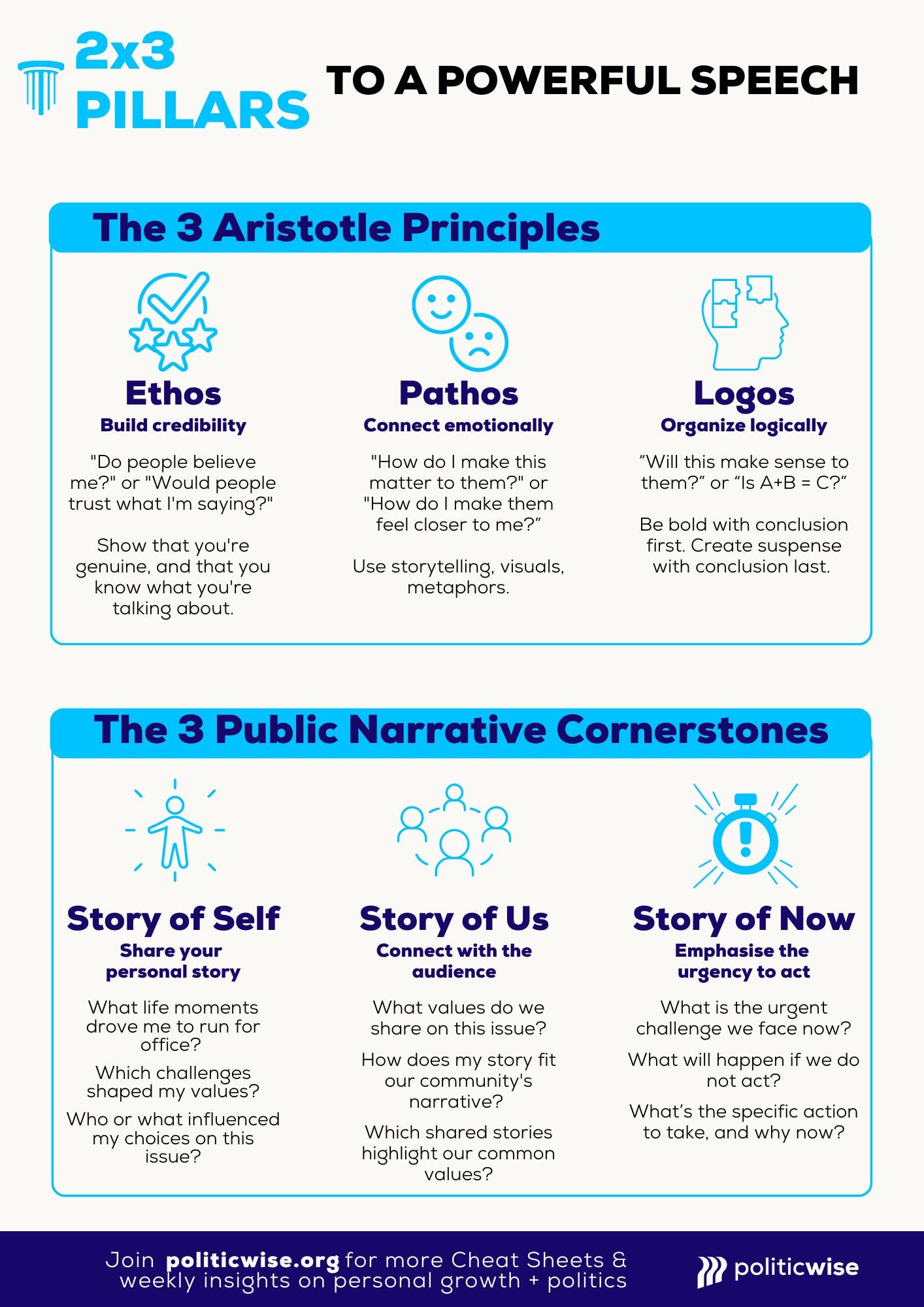politicwise is where politics meets personal development. Become a free subscriber and get evidence-based ideas and tools for personal growth and wiser politics. For those whose life's work is more than a job.
In politics, a speech can often be a ‘make-or-break’ situation: your speech to win the nomination of your party, to win others over for your policy, or to present yourself to a new audience.
The challenge people often face when preparing for these moments: where to start and what to focus on in an ocean of advice.
I suggest to go back to first principles:
The 3 Aristotle principles. These have stood the test of time and give a comprehensive view of what makes any communication effective.
The 3 Public Narrative cornerstones. These have helped inspire action in the civil rights & democracy movements as well as political campaigns.
The 3 Aristotle Principles
Build credibility ('ethos'). First, ask yourself: "Do people believe me?" or "Would people trust what I'm saying?" Think about how you can show listeners you're genuine, that you know what you're talking about.
Connect emotionally ('pathos'). It's crucial to engage your audience emotionally. Questions to consider are: "How do I make this matter to them?" and "How do I make them feel closer to me or the topic?" Think of storytelling, visuals, metaphors.
Structure matters ('logos'). Your speech should flow logically, A+B = C. People should nod and think, "Yes, that makes sense." If you want to create suspense, first provide all the arguments & facts and leave the conclusion/your key message for the end. If you want to get straight to the point, perhaps 'shock & awe', then bring your key message first (i.e. if you could only say 1 thing, this would be it), and then provide your reasoning.
The 3 Public Narrative Cornerstones
Share your personal story ('story of self'). What life moments drove me to run for office? Which challenges shaped my values? Who or what influenced my choices on this issue?
Connect with the audience ('story of us'). What values do we share on this issue? How does my story fit our community's narrative? Which shared stories highlight our common values?
Emphasize the urgency ('story of now'). Lastly, make sure to explain why we need to act now.
Fuse your answers together into a story or multiple stories. Easier said than done.
But think: children's stories, Star Wars or whatever narrative you find absorbing. The Hero, the challenge, the situation. Speak in present tense. Bring in details, picture it in your mind and chances are your audience also has a picture in mind - and is therefore engaged.
5 More Tips & Questions to Ask Yourself
Define your vision. If you're in politics, what's your dream for the future? Also, what plans do you have as a candidate or representative?
Know your strengths. Ask yourself, "Why am I the right choice for this campaign?"
Start strong and finish stronger. What's your opening line? And how will you conclude? The start & the end of your speech matter the most.
Take notes to give you guidance, but don't write out the full speech. I know there are different practices here, and you see top-level politicians read from fully written-out texts. But: if you
Practice in front of others & get feedback. Get as much exposure and get as close to the real environment that you'll be finding yourself in.





